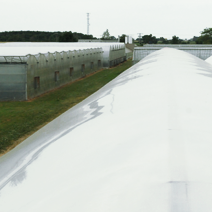Zurich Canada Launches Drone Insurance Package
Property and casualty insurer Zurich Canada announced on Wednesday that it has launched a new drone insurance product.
The drone insurance package “closes an important coverage gap” for companies already making use of drones, Zurich said.
 The new package, developed in partnership with UK-headquartered Global Aerospace Underwriting Managers Limited, will help customers across a range of industries take advantage of the risk mitigation and cost saving opportunities available through the use of Unmanned Aircraft Systems (UAS), commonly referred to as “drones,” Zurich said in a press statement. The package also “closes an important coverage gap” for companies already making use of drones in their operations, the insurer reported.
The new package, developed in partnership with UK-headquartered Global Aerospace Underwriting Managers Limited, will help customers across a range of industries take advantage of the risk mitigation and cost saving opportunities available through the use of Unmanned Aircraft Systems (UAS), commonly referred to as “drones,” Zurich said in a press statement. The package also “closes an important coverage gap” for companies already making use of drones in their operations, the insurer reported.
“Using a drone for any commercial purpose is considered an aviation activity and will therefore fall under the broad aviation exclusions of most general liability policies, should a drone cause damage or injury,” Zurich said in the statement.
The new policy provides companies with both first and third-party coverage for a variety of risks:
- First-party property coverage – for theft or damage to the drone and any ground equipment used to operate it, or any electronics or components (payload) carried;
- Third-party liability coverage – for property damage and bodily injury caused by the drone, premises liability at locations used in connection with scheduled aircraft, as well as medical expenses; and
- Additional coverage extensions, which may include malicious damage, system hacking, and personal injury.
“Zurich’s customers in Canada will be the first ones around the world to have access to this unique insurance solution, thanks to the sophisticated regulatory environment governing the use of drones in Canada,” said Urs Uhlmann, CEO of Zurich Global Corporate Canada, and leader for Zurich’s drones program in Canada.
Following the Canadian launch, Zurich’s drone insurance package will be rolled out globally on a country-by-country basis, based on local demand and the sophistication of the regulatory environment governing drones in each country, the statement said.
Transport Canada has laid out very specific guidelines for how to obtain a Special Flight Operating Certificate (SFOC) for commercial drone operations where the weight of the drone exceeds 25 kilograms (kg), or where the drone weighs between 2.1 and 25 kg, but the operation can’t meet all the safety conditions for an SFOC exemption.
Previously, insurance coverage for drones was only available through specialist aviation insurers. Now, Zurich Canada’s customers in the areas of energy and communications, such as telephone companies and broadcasters, and others, can access a “simple risk transfer solution” along with training tools and information for drone operators. Other industries include oil and gas utilities, mining, security, agriculture and media/entertainment.
 In conjunction with this new product, Zurich will be offering services to help companies manage and mitigate drone-related risks. These services include access to online operations and safety training, risk management tools developed specifically for staff flying drones, regulatory updates and unique risk insights and expert advice.
In conjunction with this new product, Zurich will be offering services to help companies manage and mitigate drone-related risks. These services include access to online operations and safety training, risk management tools developed specifically for staff flying drones, regulatory updates and unique risk insights and expert advice.
From a regulatory standpoint, unlike many other countries around the world, requirements for the commercial use of drones in Canada are quite sophisticated, Zurich said. For example, in the United States, it can be very difficult to obtain a Certificate of Waiver or Authorization and Special Airworthiness Certificate from the Federal Aviation Administration for any non-military use for a drone, Zurich Canada reported.
By contrast, Transport Canada has laid out very specific guidelines for how to obtain a Special Flight Operating Certificate (SFOC) for commercial drone operations where the weight of the drone exceeds 25 kilograms (kg), or where the drone weighs between 2.1 and 25 kg, but the operation can’t meet all the safety conditions for an SFOC exemption.
Risks around drone use need to be carefully managed. The SFOC application asks for details such as the purpose of the operation, dates, times and locations of the flights, the boundaries of area where the drone will fly and safety plans. Generally speaking, Transport Canada forbids operation of drones over or within built-up areas of cities or towns. Additionally, the Canadian Privacy Commission has also explicitly stated that drone operations are governed by Canada’s privacy laws, including the federal Personal Information Protection and Electronic Documents Act.
“The market for drones is evolving rapidly and more and more companies and industries are taking advantage of the benefits they offer. We see great potential for drones to reduce risk for workers by taking over dangerous tasks, among many other applications,” said Uhlmann.
Market analysis from The Teal Group predicts that the global UAS market will nearly double over the next 10 years to over US$91 billion, largely driven by expanding civilian use.







